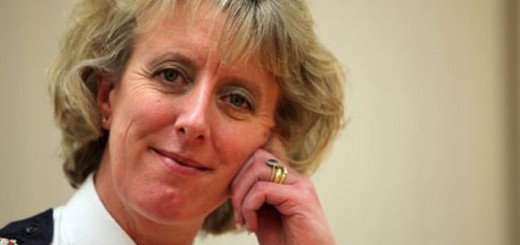Defending the indefensible
Reported in today’s Yorkshire Post is the case of a North Yorkshire Pc who has been found ‘guilty’ by a misconduct panel of using the term ‘Golliwog’. What is more concerning is all the other findings of guilt. He referred to a female member of police staff as ‘gagging for it’. He was also found guilty of misconduct for not using official protocol for lost property, not investigating lines of enquiry when asked to do so, not investigating a domestic violence case and swearing when talking to a colleague. Rightly, the Prosecutor has asked for the officer to be dismissed. PC Paul Southgate has been defended by colleagues and the Police Federation. A fellow police officer, PC Cullen spoke highly of PC Southgate and said he was a diligent and hard working officer. He may well work hard, as many police officers do, but that does not allow an officer to use racist terms, sexist remarks, swear at colleagues and fail to investigate domestic violence. PC Southgate is not an isolated example of sexist police officers. An officer in Lancashire has recently been dismissed for inappropriate sexual behaviour.
When these matters are finally investigated and decisions made, there is always the phrase used, ‘the officer fell well below the standards expected’ and ‘there is no room in a professional organisation for officers demonstrating this type of behaviour’. Unfortunately, there are a number of officers who fall well below these standards on a regular basis. As the author on Policing, Robert Reiner (2010) suggests police sub-culture is a complex amalgam of seven factors. These factors help to understand how police officers think.
- A sense of mission
- Suspicion
- Isolation/solidarity
- Conservatism
- Machismo
- Pragmatism
- Racial Prejudice
Other studies suggest further cultural issues, Reuss-Ianni (1982), Street Cops and Management Cops. This is the ‘Us and Them’ attitude. I have often heard that managers in the police service don’t understand what it is like for frontline staff. In fact I heard this in a meeting only last week. Another cultural issue, Westmarland (2001); Silvestri (2003), male and female police officers. Far too often women in the service are put into a position of ‘shut up or put up’. Policing is still seen as a very macho job. The reality is that most of police work is about supporting victims, investigation and dealing with community issues. It is not about fighting, violent arrests and chasing offenders. The increase in the number of female police officers and police staff can only enhance the service and make it more reflective of society. Women make up just over 50% of the population, whilst in the police service women make up less then 30%. Unfortunately, some women in the service are so immersed in a culture that sees them as ‘not as good’, that they do not even notice the sexist attitudes. Even if women do notice, it is rarely safe to challenge, as it is likely that you will become isolated.
Police officers and the Police Federation need to stop defending the indefensible. The Federation should spend more time supporting colleagues who are abused, bullied and harassed. There are a large number of police support networks in the service as the Federation struggles to represent rank and file officers.
It does not matter that someone is a hard worker. If they are a racist, a sexist or a homophobe then the police service should remove them and bring in people who reflect the standards that we expect and desire from a modern police service.
It was said that Pc Southgate did display this behaviour in the ‘canteen’. Well, at least the service has developed to a point where officers recognise that they cannot be open about their prejudices. What it does is drive those people underground, so they talk in corridors or vehicles with like-minded people. Supervisors need to respond to this finding and other similar ones by stating what is expected of officers by the organisation and by themselves. There is no room for these attitudes.
As the College of Policing continue with its work to professionalise the service by bringing in qualifications, we can only hope that a new breed of officer and police staff are able to openly challenge poor behaviour and are then supported by the organisation. The service for a long time has been good at teaching officers what to do and how to do it. It is now vital that officers and staff gain a deeper understanding of why they do the role and the effect of their actions on the public they serve.



Recent Comments